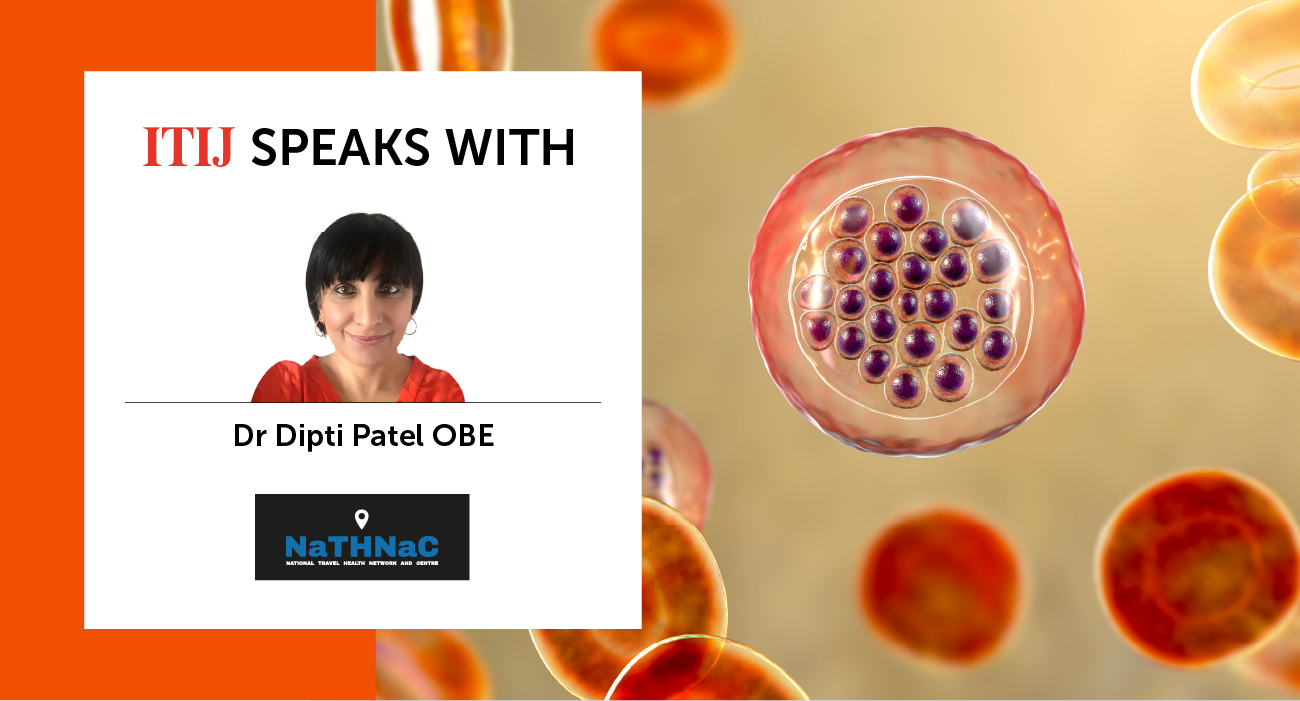Interview: Dr Dipti Patel, Director, National Travel Health Network and Centre

Dr Dipti Patel, Director of the UK’s National Travel Health Network and Centre, spoke to Michelle Royle about dealing with advice on emerging infections and what travellers should do to prepare for trips
You’ve been working with the National Travel Health Network and Centre (NaTHNaC) for over 11 years. What are the most significant challenges you’ve seen for travellers in that time?
In the time I have been with NaTHNaC, I would say that the biggest challenges have been linked to new and emerging infections, and unexpected disease outbreaks. On average, we have been dealing with at least one major outbreak that has impacted on travellers every one to two years.
When I first started at NaTHNaC, the Middle East respiratory syndrome coronavirus (MERS-CoV) was first identified. This had particular relevance for pilgrims travelling to Saudi Arabia for the Hajj or Umrah, and we provided a number of news items on this on our website TravelHealthPro. Now MERS-CoV appears as an endemic (a disease regularly found in a particular area) risk in a number of our website country pages.
Following this, there was an outbreak of chikungunya in the Caribbean, the West Africa Ebola outbreak, and the Zika virus outbreak in the Americas and Caribbean. The latter had major implications for pregnant travellers and their partners due to its association with congenital Zika syndrome. This was followed in 2016 by one of the largest outbreaks of yellow fever in Brazil in recent years. Similarly, with Zika, it now appears as an endemic risk on the country pages of a number of countries worldwide.
By far the biggest and most significant challenge, though, has been the Covid-19 pandemic; border closures, being caught on the wrong side of a border, enforced quarantine, pre-departure testing, vaccine certification, trying to keep up with the rapidly changing guidance and rules, and not being able to visit friends and family overseas were something that none of us could have envisaged.
How difficult is it to keep on top of advice for travellers and do they listen to that advice?
It can be quite difficult to keep up to date with what is happening globally and what is important for UK travellers. One of the challenges is to identify the ‘true signals’ from the ‘noise’. At NaTHNaC, we work with the UK Health Security Agency (UKHSA) to detect and assess potential risks to UK travellers through epidemic intelligence activities. This horizon scanning is performed daily, and reviews information on infectious diseases and other global events. The output of the horizon scanning is reviewed further by the NaTHNaC team to identify those of significance to UK travellers, and this will help inform any advice we give. We will either report outbreaks or events of significance on our website outbreak surveillance database, or as a news item. The information will always be linked to the country/countries it relates to. It generally works well; we reported on all of the outbreaks I mentioned above before they reached public awareness.
Whether travellers listen to this advice is much more complicated; the literature tells us that travellers do not seek or adhere to advice when they perceive their risk to be low. Effective risk communication is difficult, and travellers are a diverse group, so a one-size-fits-all approach is challenging. The key for us is to try and provide meaningful, relevant, accurate and timely information.
What does a typical workday look like for you?
My workdays are very variable, not least because I split my time between the Foreign, Commonwealth & Development Office (FCDO) and NaTHNaC. At the FCDO my time will be spent at meetings discussing health-related policies or difficult casework, reviewing documents, meeting with stakeholders, and having discussions with my team. The topics can range from how to advise FCDO staff and families on malaria risk in West Africa, to guidance on air quality in South Asia. I also see patients; but that is generally limited to one clinic a week.
It can be quite difficult to keep up to date with what is happening globally and what is important for UK travellers. One of the challenges is to identify the ‘true signals’ from the ‘noise’.
On NaTHNaC days, again I will have a large number of meetings in my diary, both internal and external. We have a weekly epidemic intelligence meeting so the team can discuss any global outbreaks or incidents of concern. Once or twice a week I am on call for the NaTHNaC health professional advice line and email enquiry service, and have to be available for any queries that need a doctor’s input. The queries can range from advice on a vaccine error, to providing advice on travellers with complex medical histories and complicated itineraries – these mostly relate to yellow fever or malaria. In both my jobs I try to factor in some time to research ‘hot topics’ or queries where the evidence base is limited.

Which aspects of your roles do you enjoy the most?
I like the variety in both my roles; no day is the same. I also like the problem-solving aspects. In both roles we are often dealing with scenarios that are extremely unusual or we haven’t encountered before, and I enjoy trying to work out how to handle these. Though the most enjoyable aspect of both jobs is working with colleagues from all over the world.
What are the risks travellers might be taking at the moment that worry you?
There are two main things that I worry about at the moment. The first is that many of the sensible practices that we had as part of our routine at the height of the Covid-19 pandemic seem to have been forgotten: researching trips, getting vaccinated, taking sensible precautions, handwashing, etc.
The other area that concerns me is the amount of information and misinformation on the internet. This makes it very difficult for travellers to find accurate information; and misleading information is a real concern – for example, we still see information on the internet about using homeopathic medicines to prevent malaria.
The latest heatwaves have had a catastrophic impact in many regions this summer. What is the latest advice for travellers and what advice would you give people when planning a trip in 2024?
I think with the warming trends we are seeing globally, again I would advise travellers to do their research. There is a lot of useful information on NaTHNaC’s website on a variety of heat-related topics: heatwaves, sun exposure, wildfires, etc. Travellers, though, also need to consider the indirect effect of the heatwaves: the weather we are experiencing is also creating more favourable conditions for mosquitoes and other disease vectors, such as fleas and ticks, which transmit diseases. So, for example, we are seeing a change in malaria transmission in some parts of Africa and the Americas, and we have seen outbreaks of certain diseases like dengue and West Nile fever in places where they don’t usually occur.
I think the key advice is that travellers should do their research before they travel – even if it is a part of the world they know well
There have been a few cases recently of malaria in the US. How significant is this?
The US has reported locally acquired cases of malaria in Florida, Texas and Maryland in recent months. Before this year, locally acquired mosquito-borne malaria had not occurred in the United States since 2003. The mosquitoes that transmit malaria do exist in many parts of the US, and are capable of transmitting malaria if they feed on a malaria-infected person, but the risk of getting malaria in the US is very low. This risk will increase, though, where local climatic conditions allow the malaria mosquito to survive during most of or the entire year, and in locations with travellers from malaria-endemic areas. So this really links to the question above; with the changes in climate, we are seeing certain diseases occurring in places where we would not expect them. I think this is something we should expect to occur more frequently – not just malaria, but other infections like Lyme disease, tick-borne encephalitis, and dengue, to name a few.
As people travel more since the end of Covid-19 restrictions, what general advice should they follow when travelling?
I think the key advice is that travellers should do their research before they travel – even if it is a part of the world they know well; Covid-19 has shown us that things can change very quickly. Take any preventive measures, such as vaccinations or antimalarial tablets, that are recommended for your destination, and follow any preventive advice for that country. NaTHNaC’s country information pages will provide this information.
Most importantly, remember that many travel risks are similar to the risks we saw pre-pandemic, and good planning, prevention and flexibility remain important.